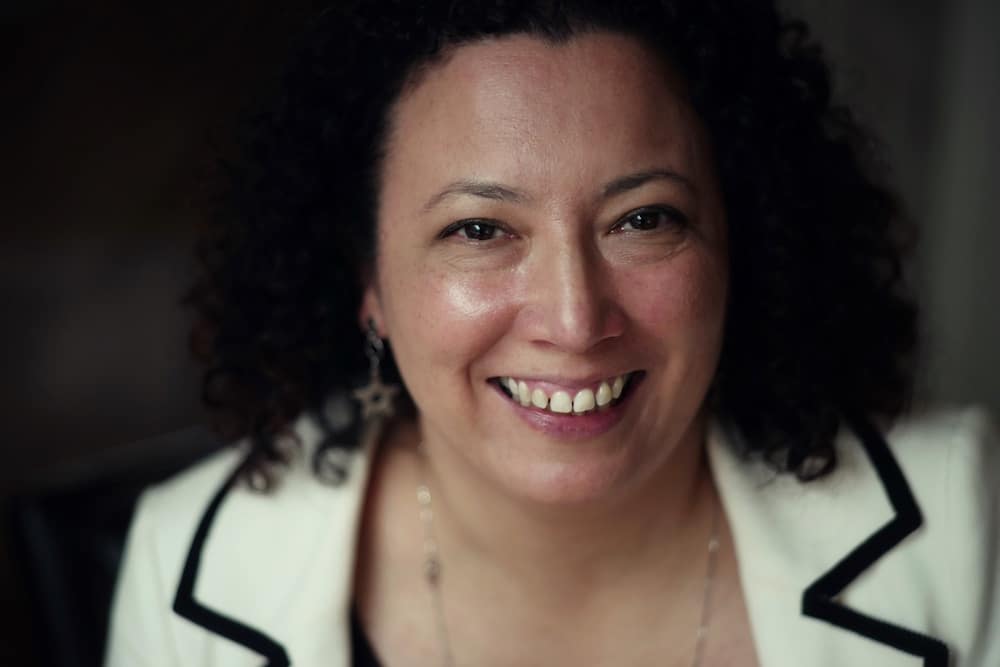Maya Forstater’s ‘gender critical’ views are protected by equalities law. (Barney Cokeliss/@BCokeliss)
In a high-profile legal case – thanks to JK Rowling – brought by tax researcher Maya Forstater, a judge has ruled that “gender critical” views qualify as a protected belief under UK equalities law.
Along with “gender critical” views, legally protected beliefs include ethical veganism, the belief in the “higher purpose” of the BBC, and the belief in the ability of spiritual mediums to contact the dead.
It is unsurprising, really, that Maya Forstater managed to establish “gender critical” views as a protected philosophical belief under the protected characteristic of “religion or belief” in the Equality Act 2010. As the judge said today, any philosophical beliefs short of “Nazism or totalitarianism” can be afforded the protection of the law.
But while the mainstream media has simplified the case beyond recognition or outright lied about what it was even about, what does the ruling actually mean for transgender people?
In practical terms: not much. As the Trades Union Congress said in a statement: “Employers have a responsibility to keep all their staff, including trans and non-binary workers, safe from discrimination and harassment. As the judgement has highlighted, this case does not change that.”
One of the worst parts will be the transphobic media circus, which may take some days to die down. Other anti-trans campaigners will likely be emboldened by Forstater’s victory – indeed, she’s already been congratulated by Caroline Farrow, whose view is that in making it clear that “gender critical” views are protected, Maya Forstater has also helped protect those with beliefs about the “sanctity of life“.
Today’s ruling overturns a 2019 employment tribunal judgment that said Maya Forstater had not been directly discriminated for holding “gender critical” views, because her views were not a protected belief as they were “not worthy of respect in a democratic society”.
Forstater brought the case against the Center for Global Development (CGD), where she formerly worked on a consultancy basis, claiming the think-tank had discriminated against her by failing to renew her contract after colleagues complained about her anti-trans tweets.
She said she had been discriminated against for having “gender critical” views. On Twitter and in workplace Slack messages, Maya Forstater was vocal about being “gender critical”, which possibly can be best summed up by her saying that the phrase “trans women are women” is a “literal delusion”.
Now that “gender critical” views are established as a protected belief, Forstater’s case will go back to the employment tribunal where she will argue again that she lost her job because of her “gender critical” views.
“Gender critical” is the preferred term of campaigners who are what other people would call “transphobic” – in that they deny trans people’s lived truth (“trans women are men”), oppose trans people’s rights (by campaigning against reforms to gender recognition laws or launching legal cases against trans-inclusive legislation, and wish, like Republicans in the US, to “protect women and children” by banning gender-affirming healthcare for young trans people and prohibiting trans women and girls from playing on women’s sports teams.
As today’s ruling points out, just because Forstater’s “gender critical” view falls under the protected characteristic of “religion or belief” in the Equality Act 2010, this does not mean that people with “gender critical” views are free to misgender, deadname or otherwise harass trans people.
Qualifying as a protected belief does not mean that those with gender critical beliefs can “indiscriminately and gratuitously refer to trans persons in terms other than they would wish”, the ruling says.
“Such conduct could, depending on the circumstances, amount to harassment of, or discrimination against, a trans person,” it adds.
As trans journalist Gemma Stone has pointed out, what is “disappointing” about today’s ruling is that “our legal system has ignored all of the context surrounding Maya’s statement of belief ie ‘sex is immutable’”.
“That belief doesn’t exist in a vacuum and exists entirely to undermine transgender people’s human rights,” Stone added. “There is no other time people say the phrase ‘sex is immutable’ other than to argue transgender people don’t exist or otherwise should be treated badly.”
In her own submissions to the court, Maya Forstater said: “I reserve the right to use he and him pronouns for male people. No one has the right to compel others to make statements they don’t believe.” She also signed the Women’s Human Rights Campaign declaration calling for the “elimination of transgenderism“.
Helen Belcher, of TransActual UK, said that while “advocates of an absolute right to unfettered free speech may celebrate” today’s ruling, others may wonder about the implications “for those who might be targeted by someone holding other such ‘philosophical beliefs’, such as ‘all women should stay at home and have babies’, or ‘white people are genetically superior to others’”.
“In short, as one commentator put it: ‘You have the right to hold abhorrent views. But nobody has won the right to act out like a spoiled child because of them.’
“All that Maya Forstater has won is that her tribunal may be heard again, bearing in mind the judges’ comments today.”
